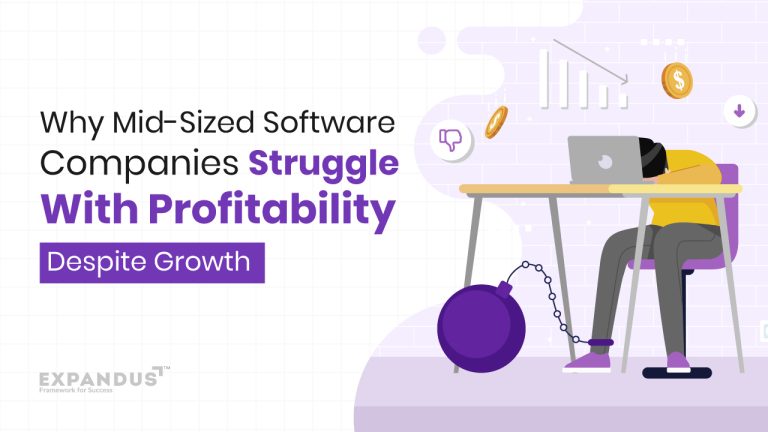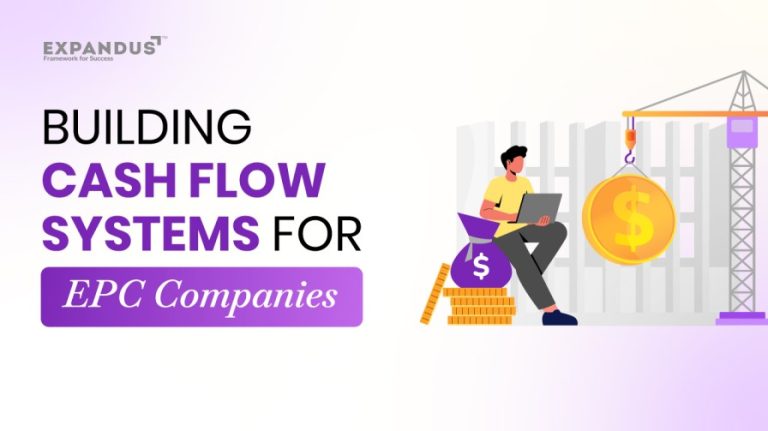Overcoming The Sales Objection: Difference Between Generic Software and Customise Software
When talking to customers about software, a common question is: “What’s the difference between Generic Software and Customise Software?” It’s important to explain this clearly to help them make the best choice for their needs. Generic software is like an off-the-shelf product that works for many people but might not have all the features someone needs. Customized software, on the other hand, is made specifically for a customer, fitting perfectly with their requirements. This makes it more flexible and efficient for their unique situation. Let’s dive into the main difference between generic software and customized software and why customized software can often be a better choice.
Overcoming sales objections: Generic Software and Customise Software
Many customers struggle with choosing the right software. Should they buy Generic Software and Customise Software? Overcoming sales objections can greatly affect how their business runs.
Scenario Overview
Think about being a business owner who needs software for daily tasks. You find generic software that seems to meet your needs but might not fit perfectly. On the other hand, there’s Custom software solutions designed specifically for your business. This shows Overcoming sales objections and the difference between convenience and a perfect fit.
The Challenge for Software Services Companies
Software companies face the challenge of explaining the benefits of both generic and custom options. Generic software products is easy to sell because it’s ready to use and suits many people. But, showing customers the value of custom software means explaining how it can make their work more efficient, save money over time, and give them an edge over competitors.
Importance of Addressing This Objection
It’s very important for software companies to explain the difference between generic and custom software. This helps customers understand why a custom solution might be better for their unique needs. By addressing this objection well, companies can build trust, make customers happy, and grow their business in a competitive market.
Identifying the Root Cause of the Objection
When customers hesitate between generic and customized software, it’s important to understand why. By finding out the main reasons for their hesitation, we can address their concerns and help them make the best decision.
Understanding the Customer’s Perspective
First, we need to see things from the customer’s point of view. Customers want software that solves their problems and fits their needs. They might worry about the time, cost, and effort involved in creating customized software. They might also wonder if customized software will truly be better than ready-made options. By understanding these worries, we can better address them.
Generic Software and Customise Software :Reasons for Preferring Ready Products in Software Sales Strategies:
Customers often prefer ready-made software for several reasons:
- Cost: Generic software products are usually cheaper upfront because it’s already developed and ready to use.
- Time: It can be quickly implemented, allowing businesses to start using it right away.
- Ease of Use: Generic software products often has a user-friendly interface that many people are already familiar with.
- Proven Track Record: Customers might feel more comfortable with software that has been tried and tested by others.
These factors make ready-made software seem like a safer and more convenient choice in Software sales strategies.
Evaluating the Sales Process
To effectively address the objection, we need to look at our sales process. Are we clearly explaining the benefits of customized software? Are we listening to the customer’s specific needs and showing how a tailored solution can meet those needs better than a generic one?
- Clear Communication: Explain the long-term benefits and cost savings of customized software.
- Demonstrations and Examples: Use case studies and examples to show how other businesses have benefited from customized solutions.
- Personalized Approach: Tailor the sales pitch to address the customer’s specific concerns and show how the customized software will solve their unique problems.
By improving our sales process and addressing the main reasons for the objection, we can help customers see the value of customized software and make a decision on Ready vs custom software that best fits their business needs.
Deep Dive Method for Effective Sales
When customers are unsure about choosing between generic software and customized software, it’s important to use a detailed method to help them decide. This method involves understanding their current situation, what benefits they want, other solutions they are considering, and their future growth plans. This approach can help address their concerns and show the true value of customized software.
Customer’s Current State in Software sales strategies
First, we need to understand the customer’s current situation. Ask questions like:
- What software are you using now?
- What problems are you facing with your current software?
- What features do you like or dislike about it?
By understanding the current state of Custom vs off-the-shelf software, we can see what issues they need to solve and how customized software can help.
Identifying Desired Benefits
Next, find out what benefits the customer is looking for. Ask questions like:
- What are your main goals for using new software?
- What specific features or functions are you looking for?
- How do you want the software to improve your business?
Knowing what benefits they want helps us show how customized software can meet their specific needs better than generic options.
Exploring Alternative Solutions
Then, explore other solutions the customer is considering. Ask questions like:
- Have you looked at any other software options?
- What do you like or dislike about those options?
- Why are you considering those alternatives?
Understanding what other solutions they are looking at helps us highlight the advantages of customized software compared to generic software.
Considering Future Growth and Scalability
Lastly, consider the customer’s future growth and scalability needs. Ask questions like:
- How do you see your business growing in the next few years?
- What new features might you need as you grow?
- How important is it for your software to scale with your business?
By considering their future needs, we can show how customized software can grow and adapt with their business, providing long-term value.
By using this deep dive method, we can address the customer’s concerns, show the true benefits of customized software, and help them make a decision that supports their current and future needs.
When to Pitch Custom Software Development
Choosing between generic software and custom software can be tricky. Custom software can be very helpful, but it’s important to know when it’s the right choice. Here’s how to decide if custom software is a good fit for your business by looking at key indicators, business growth, financial readiness, and the time needed for development.
Indicators for a Good Custom Software Fit
Custom software works well when your business has special needs that generic software can’t meet. Here are some signs that custom software might be right for you:
- Unique Processes: Your business has unique processes that need special features.
- Scalability: Your business plans to grow and needs software that can grow with it.
- Integration Needs: You need to integrate the software with other systems you use.
- Competitive Advantage: Custom software can give you an edge by offering unique features.
Business Growth and Flexibility
Custom software is great for businesses that want to grow and need flexible solutions. Think about these points:
- Future-Proofing: Custom software can be made to handle future business needs.
- Adaptability: It can be easily changed as your business evolves.
- Efficiency: Custom software can make your processes smoother and more efficient.
Financial Readiness and Investment
Creating custom software costs money. Here’s what to consider:
- Budget: Make sure you have enough money for development and maintenance.
- Long-Term Value: Custom software can save money in the long run by reducing inefficiencies.
- ROI in software sales: Custom software can lead to higher profits through better performance and customer satisfaction.
Time Commitment for Development
Making custom software takes time. Be ready for:
- Development Time: It can take several months to develop custom software.
- Testing and Feedback: You’ll need time to test the software and give feedback.
- Training: Employees may need training to use the new software properly.
By thinking about these factors, you can decide if custom software is the best choice for your business. Custom software can offer solutions tailored to your needs, support business growth, provide financial benefits, and be worth the time investment in the right situations.
If you need personalized help, book a free session with our experts at ExpandUs business coaching services.
When to Avoid Custom Software Development?
Choosing the right software for your business is important. While custom software can be very helpful, there are times when it might not be the best choice. Here’s how to know when to avoid custom software development by considering immediate needs, team size, feature clarity, and budget constraints.
Immediate Software Needs
If your business needs software right away, custom software might not be the best choice. Developing custom software takes time. It can take several months to design, build, test, and launch. If you need a quick solution, generic software, which is already made and ready to use, might be a better option. This allows you to get started immediately without waiting for the development process.
Small Team and Limited Growth
Custom software is often best for businesses with plans for significant growth. If you have a small team and don’t plan to expand much, generic software might be enough. Generic software often comes with all the basic features you need and is designed to be easy to use, making it a good fit for smaller teams that don’t have complex requirements.
Unclear Feature Requirements
Custom software works best when you know exactly what features you need. If you’re not sure what you want, it can be hard to design custom software that fits your needs perfectly. In such cases, it might be better to start with generic software. This allows you to see what features are important and what you might need in the future. Once you have a clear idea, you can then consider custom software.
Strict Budget Constraints
Developing custom software can be expensive. If your budget is tight, it might be better to avoid custom software and go for a generic option. Generic software is usually cheaper because it’s already developed and sold to many users, spreading out the costs. This can be a more affordable solution, especially for small businesses or startups with limited funds.
By considering these factors, you can decide when to avoid custom software development. Sometimes, generic software is the better choice for meeting immediate needs, fitting within a small team, managing unclear requirements, and staying within budget constraints.
Handling the Objection with a Qualified Customer
Handling objections when discussing the difference between generic and customized software with a customer is important. Here’s how to do it in a simple way:
Empathizing with the Customer
First, show that you understand the customer’s concerns. Listen carefully to what they are saying and acknowledge their worries. For example, if a customer is worried about the cost of custom software, you might say, “I understand that budget is a big concern for you.” By doing this, you build trust and show that you care about their needs.
Digging Deeper into the Objection
Next, ask questions to understand their concerns better. Find out why the customer prefers generic software or why they hesitate to choose custom software. For example, you can ask, “Can you tell me more about why you prefer ready-made software?” or “What specific concerns do you have about custom software?” This helps you understand their real issues.
Addressing Specific Concerns
After understanding their concerns, address them directly. If the customer is worried about the time it takes to develop custom software, explain the benefits that come with a tailor-made solution and how it can be worth the wait. If cost is a concern, discuss how custom software can save money in the long run by improving efficiency and reducing other costs. Make sure to give clear and simple answers to each concern.
Building the Case with ROI in software sales
Finally, show how custom software can lead to better results. Explain how it can increase productivity, improve customer satisfaction, and boost sales. Use examples from other businesses that have benefited from custom software. For instance, tell how a company saved money and improved operations by switching from generic to custom software. Providing real-life examples can help the customer see the value of the investment.
By empathizing with the customer, understanding their objections, addressing specific concerns, and demonstrating the benefits, you can help the customer make a well-informed decision about choosing between generic and customized software.
Wrapping It Up
Deciding between Custom vs off-the-shelf software can be tough for many businesses. Understanding the differences and listening to customer concerns can make this choice easier. Generic software is quick and affordable but might not meet all needs. Custom software is made to fit specific needs, can grow with the business, and save money in the long run.
To help customers choose, businesses should listen carefully, understand their worries, answer their questions, and show how custom software can be a good investment. This approach builds trust, highlights the benefits of custom solutions, and helps customers make the best decision. In the end, overcoming these concerns can lead to happier customers and better results.









